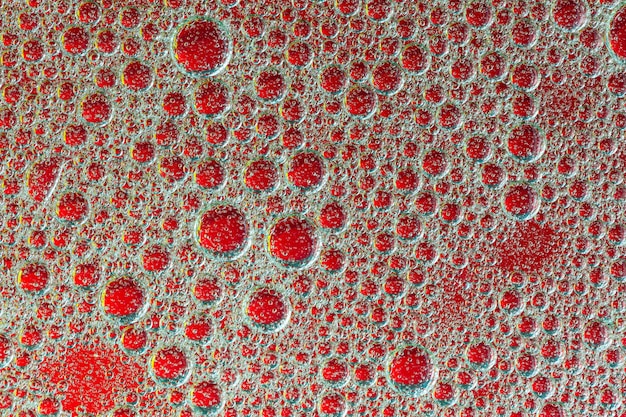Vitamin B12 Deficiency: Risks and Dietary Strategies for Optimal Absorption

Vitamin B12 deficiency occurs when the body doesn’t get enough B12 from diet or can’t absorb it properly, leading to symptoms like fatigue, nerve damage, and cognitive issues; risk factors include age, diet, and certain medical conditions.
Are you feeling unusually tired or experiencing tingling in your hands and feet? These could be signs of Vitamin B12 Deficiency: Identifying Risk Factors and Optimizing Absorption Through Dietary Strategies is crucial for maintaining overall health, and understanding the causes and solutions can make a significant difference.
Understanding Vitamin B12 Deficiency
Vitamin B12, also known as cobalamin, is an essential nutrient that plays a vital role in various bodily functions. It is crucial for nerve function, DNA synthesis, and the production of red blood cells. A deficiency in vitamin B12 can lead to a range of health issues, from fatigue to neurological problems.
This section will explore what vitamin B12 deficiency entails, why it is important to maintain adequate levels, and what can happen if levels drop too low.
What is Vitamin B12?
Vitamin B12 is a water-soluble vitamin that the body needs but cannot produce on its own. It is naturally found in animal products, and certain fortified foods, and is available as a dietary supplement. The primary functions of B12 include:
- Supporting nerve cell health and function
- Assisting in the formation of red blood cells
- Playing a role in DNA synthesis
Why Adequate B12 Levels Are Essential
Maintaining sufficient vitamin B12 levels is crucial for several reasons. It supports overall well-being and prevents a host of health problems. Here are some key benefits:
- Prevents Anemia: Vitamin B12 is essential for the formation of red blood cells, preventing megaloblastic anemia, a condition that causes fatigue and weakness.
- Supports Neurological Function: Adequate B12 levels are necessary for proper nerve function, preventing nerve damage and neurological issues.
- Enhances Cognitive Function: B12 plays a role in cognitive processes, and deficiencies can lead to memory problems and cognitive decline.

In summary, understanding what vitamin B12 is and why it is essential underscores its role in maintaining a healthy and functional body. Ensuring adequate levels through diet or supplements is crucial for preventing deficiencies and supporting overall well-being.
Identifying Risk Factors for Vitamin B12 Deficiency
Several factors can increase the risk of developing vitamin B12 deficiency. Recognizing these risk factors is the first step in preventing the deficiency. This section explores the primary risk factors associated with B12 deficiency.
Understanding these factors can help individuals take proactive steps to ensure they maintain adequate vitamin B12 levels.
Dietary Choices
Diet plays a significant role in vitamin B12 levels. Certain dietary choices can increase the risk of deficiency:
- Vegetarian and Vegan Diets: Vitamin B12 is primarily found in animal products, so vegetarians and vegans may not get enough B12 from their diet alone.
- Limited Meat Intake: Even those who eat meat may not consume enough to meet their B12 needs.
Age-Related Factors
As people age, their ability to absorb vitamin B12 from food can decrease due to reduced stomach acid production and intrinsic factor. This can lead to:
- Decreased Stomach Acid: Reduced stomach acid makes it harder to release B12 from food during digestion.
- Reduced Intrinsic Factor: Intrinsic factor, a protein produced in the stomach, is necessary for B12 absorption in the small intestine.
Medical Conditions
Certain medical conditions can impair the absorption of vitamin B12, increasing the risk of deficiency:
- Atrophic Gastritis: This condition reduces stomach acid production, hindering B12 absorption.
- Pernicious Anemia: An autoimmune condition that destroys cells in the stomach that produce intrinsic factor.
- Small Intestine Issues: Conditions like Crohn’s disease and celiac disease can affect B12 absorption in the small intestine.
Identifying and understanding these risk factors can empower individuals to take appropriate measures, such as dietary adjustments or supplementation, to mitigate the risk of vitamin B12 deficiency.
Recognizing the Symptoms of Vitamin B12 Deficiency
The symptoms of vitamin B12 deficiency can vary widely and may develop gradually. Recognizing these symptoms early is critical for timely intervention and preventing long-term health consequences.
This section outlines the common symptoms associated with vitamin B12 deficiency, helping individuals identify potential issues and seek appropriate medical advice.
Physical Symptoms
Physical symptoms are often the first signs of vitamin B12 deficiency:
- Fatigue and Weakness: Feeling unusually tired and weak, even after adequate rest.
- Pale Skin: A pale or yellowish tint to the skin.
- Shortness of Breath: Difficulty breathing or feeling breathless during normal activities.
Neurological Symptoms
Vitamin B12 deficiency can also manifest in neurological symptoms, affecting nerve function and cognitive abilities:
- Numbness and Tingling: A sensation of pins and needles in the hands and feet.
- Difficulty Walking: Balance problems and difficulty coordinating movements.
- Memory Problems: Trouble remembering things or experiencing cognitive decline.

Psychological Symptoms
In some cases, vitamin B12 deficiency can lead to psychological symptoms, affecting mood and mental health:
- Depression: Feeling persistently sad or hopeless.
- Irritability: Becoming easily annoyed or frustrated.
- Confusion: Difficulty thinking clearly or concentrating.
By being aware of these various symptoms, individuals can promptly recognize potential vitamin B12 deficiency and seek medical evaluation. Early diagnosis and treatment are essential to prevent the progression of symptoms and long-term health complications.
Dietary Sources Rich in Vitamin B12
Consuming a diet rich in vitamin B12 is a fundamental step in preventing and managing deficiency. Including a variety of B12-rich foods can help maintain adequate levels and support overall health.
This section explores the best dietary sources of vitamin B12, providing guidance on how to incorporate them into your daily meals.
Animal Products
Animal products are the most reliable sources of vitamin B12:
- Meat: Beef, liver, and poultry are excellent sources of B12.
- Fish: Salmon, tuna, and trout are rich in this essential vitamin.
- Dairy: Milk, cheese, and yogurt are also good sources of B12.
Fortified Foods
For vegetarians and vegans, fortified foods can be a valuable source of vitamin B12:
- Fortified Cereals: Many breakfast cereals are fortified with B12.
- Plant-Based Milks: Almond milk, soy milk, and other plant-based milks are often fortified.
- Nutritional Yeast: A popular vegan ingredient that provides a cheesy flavor and B12.
Tips for Incorporating B12 into Your Diet
Integrating vitamin B12-rich foods into your daily meals can be simple and delicious:
Including a variety of these foods in your diet can help ensure you meet your daily B12 requirements. For those with dietary restrictions or absorption issues, supplements may be necessary.
Optimizing Absorption of Vitamin B12
Even with a diet rich in vitamin B12, some individuals may still struggle with absorption due to various factors. Optimizing B12 absorption is essential to ensure the body effectively utilizes this crucial nutrient.
This section provides strategies to enhance the absorption of vitamin B12, helping individuals maximize the benefits of their dietary intake or supplements.
Addressing Underlying Conditions
Certain medical conditions can impair B12 absorption. Addressing these conditions is crucial:
- Stomach Acid Issues: If low stomach acid is the problem, consult with a healthcare provider about potential solutions.
- Intestinal Disorders: Manage conditions like Crohn’s disease or celiac disease to improve nutrient absorption.
Supplementation Strategies
When dietary intake is insufficient, or absorption is compromised, B12 supplements can be beneficial:
By implementing these strategies, individuals can optimize the absorption of vitamin B12, ensuring their bodies receive the necessary amount.
Vitamin B12 Supplementation: Types and Dosages
When dietary sources are insufficient, vitamin B12 supplementation becomes a practical option. Understanding the different types of B12 supplements and appropriate dosages is essential for effective treatment.
This section explores the various forms of B12 supplements available and provides guidance on selecting the right dosage to meet individual needs.
Types of B12 Supplements
There are several forms of vitamin B12 supplements, each with its advantages:
- Cyanocobalamin: A synthetic form of B12 that is widely available and inexpensive.
- Methylcobalamin: A natural form of B12 that is easily absorbed by the body.
- Adenosylcobalamin: Another natural form that supports cellular energy production.
- Hydroxocobalamin: A form often used in injections, providing a sustained release of B12.
Dosage Recommendations
The recommended dosage of vitamin B12 can vary based on individual needs and health conditions:
- General Maintenance: A daily dose of 2.4 mcg is typically recommended for adults to maintain adequate levels.
- Deficiency Treatment: Higher doses, such as 1000 mcg per day, may be prescribed to treat a deficiency.
- Injections: Injections of hydroxocobalamin may be administered weekly or monthly to bypass absorption issues.
Consulting with a healthcare provider is crucial to determine the most suitable type and dosage of vitamin B12 supplements. Regular monitoring of B12 levels can help ensure the effectiveness of the chosen supplementation strategy.
| Key Point | Brief Description |
|---|---|
| 🥩 Dietary Sources | Include meat, fish, dairy, and fortified foods for B12 intake. |
| 💊 Supplementation | Consider B12 supplements if diet is insufficient or absorption is impaired. |
| 👴 Risk Factors | Age, dietary choices, and medical conditions can increase B12 deficiency risk. |
| 🩺 Symptoms | Fatigue, pale skin, neurological issues, and psychological symptoms. |
Frequently Asked Questions
▼
Common symptoms include fatigue, weakness, pale skin, numbness, tingling, memory problems, and mood changes. Recognizing these early is crucial for timely intervention.
▼
Animal products like meat, fish, dairy, and eggs are naturally rich in B12. Fortified foods, such as cereals and plant-based milks, are good alternatives for vegetarians and vegans.
▼
Address underlying conditions like stomach acid issues, take supplements as prescribed, and consider injections for severe cases. Combining diet with supplements can help optimize absorption.
▼
Common types include cyanocobalamin (synthetic), methylcobalamin (natural), adenosylcobalamin (natural), and hydroxocobalamin (used in injections). Each has different absorption rates and benefits.
▼
Vegetarians, vegans, older adults, and individuals with medical conditions such as atrophic gastritis, pernicious anemia, or intestinal disorders are at a higher risk of developing B12 deficiency.
Conclusion
Understanding Vitamin B12 Deficiency: Identifying Risk Factors and Optimizing Absorption Through Dietary Strategies is vital for maintaining overall health. By recognizing the risk factors, symptoms, and implementing appropriate dietary and supplementation strategies, individuals can effectively prevent and manage B12 deficiency for a healthier life.





